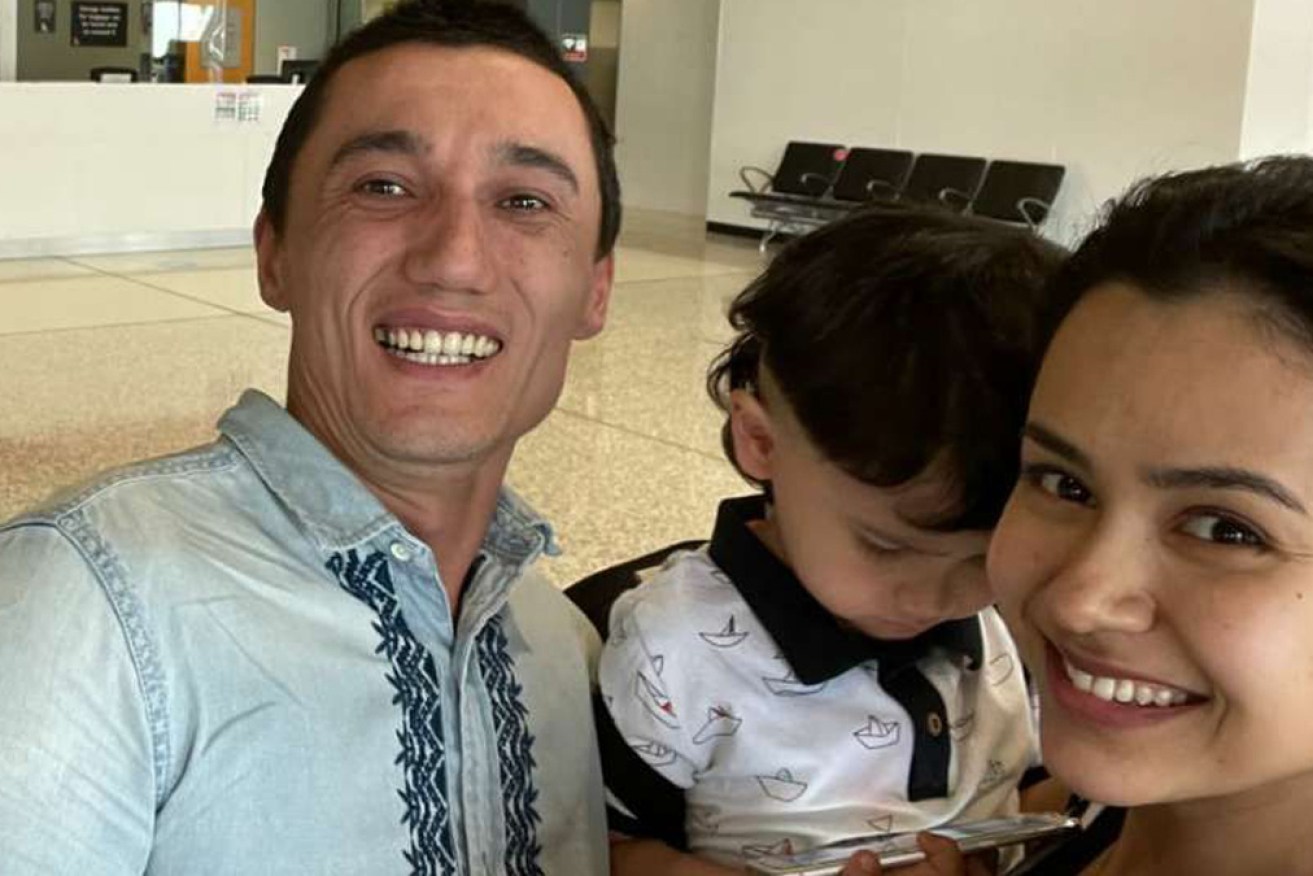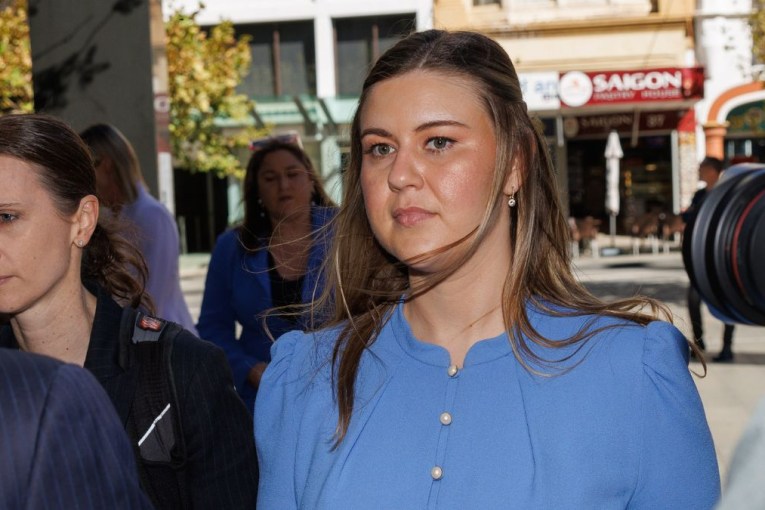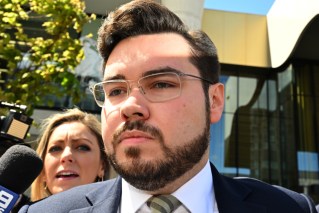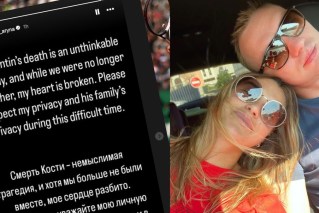Australian whose Uyghur wife and son were stuck in China celebrates their return

Sadam Abudusalamu has finally been reunited with son Lutfy and wife Nadila Wumaier. Photo: Twitter
An Australian man whose wife and young child were stuck in the Xinjiang region of China for three years has announced their safe return to Australia.
Sadam Abudusalamu met his son Lutfy for the first time following years of anxiety after his then-pregnant wife Nadila Wumaier was caught up in China’s crackdown on Uyghurs and other Muslim minorities in Xinjiang.
“I am so overjoyed to inform everybody that yesterday I was reunited with my wife, who I have not seen for three years, and my son, who I had not yet met,” he said in a statement posted to Twitter on Friday.
“I never thought this day would come and I would dearly like to thank everyone who worked so hard to reunite us.”
Tweet from @SMusapir
The pair’s return to Australia follows years of media coverage and lobbying by the Australian government and human rights activists.
“In particular, Foreign Minister Marise Payne and her team at DFAT, you all did an incredible job, thank you so much,” Mr Abudusalamu wrote, also thanking his lawyer Michael Bradley and Marque Lawyers, rights groups, and the ABC’s Four Corners program.
“The perfect ending to a crappy year. And our biggest win ever,” Marque Lawyers said.
Mr Abudusalamu told his story to Four Corners in 2019.
“You all made my dreams come true, I love you guys,” he said on Twitter.
“Thank you … Sophie McNeill and Four Corners and every single journalist and human rights activist who covered my story and told the world what is happening to the Uyghurs.”
Tweet from @MarisePayne
China claimed Mr Abudusalamu’s wife did not wish to return
Mr Abudusalamu also thanked officials in China “who decided to give my wife back her passport”.
While Lutfy is an Australian passport holder, Ms Wumaier had been waiting for her Australian spouse visa to be approved when she says she was forbidden from travelling by Chinese authorities in 2017.
Mr Abudusalamu has previously told the ABC that she had been repeatedly taken in for questioning by local authorities in Xinjiang.
“She has been taken every day until now, every day by the police, but I don’t want to mention what they’re asking,” Mr Abudusalamu said in 2019.
“They forced [her] to sign some papers, it’s been really tough for her – she’s really scared, she’s really worried.”
Deputy head of mission at Australia’s Chinese embassy Wang Xining claimed on Q+A in February 2020that Ms Wumaier told local authorities in China that she did not want to leave the country.
He was responding to a question submitted by Mr Abudusalamu.
“The girl with the son told the government in Xinjiang she would not like to come to Australia,” Mr Wang said.
“This is the story, the information provided by the regional government.”
Tweet from @SMusapir
But Mr Abudusalamu later tweeted a photo of his wife, dated February 25, reading: “I want to leave and be with my husband”.
It has been estimated at least 1 million Uyghurs are held in internment camps in Xinjiang – which China labels re-education centres – which some observers claim represents the largest imprisonment of people on the basis of religion since the Holocaust.
Uyghurs across Xinjiang have said they are subject to systematic surveillance, which has prevented some from speaking to relatives overseas, for fear of reprisals by authorities.
Many who are vocal on the rights of Uyghurs say they have been harassed by the Chinese Government overseas.
“My dream is for all my fellow Uyghurs to be reunited with their families,” Mr Abudusalamu said.
He asked the media to respect his privacy and “allow my family to finally begin our life together”.








